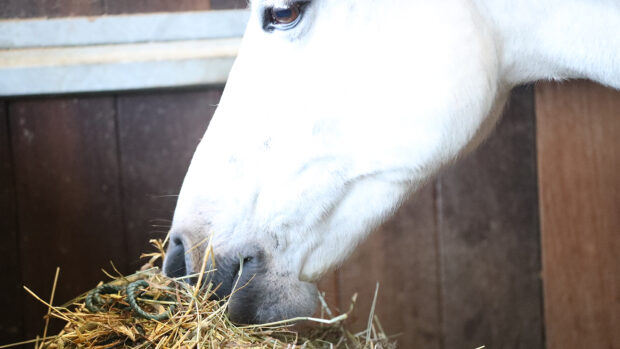What about taking on grooms on a self-employed basis? Save a lot of hassle? Very likely not! Read on …
1. Self employed grooms — getting it wrong
Whether grooms are employed or self-employed doesn’t depend on what label you give them or on whether you put them on PAYE. Employing grooms on a “freelance” basis when they should be on PAYE is just storing up trouble.
If they
- must work when asked
- work only or mainly for you
- follow the instructions/systems you give them
- don’t have any financial risk
then they are probably employees. Even if they are not employees, they could still be “workers” and entitled to minimum wage, statutory holidays, and protection from discrimination.
Failure to give them a written statement of terms of employment invites a penalty of 2-4 weeks pay if a tribunal gets to hear about it — but that’s the least of your problems. What about HMRC demanding the tax and NI arrears — from you? And the potential employment tribunal claims if you haven’t complied with the Employment Rights Act — which of course you won’t have?
2. National Minimum Wage (NMW) Traps
You may know the national minimum wage figures but do you realise that:
- Accommodation for live-in grooms can only count for up to £33.74 a week towards the NMW.
- If they keep their horse on the yard you can’t offset the cost of that against their pay
- Time spent asleep but on call may have to be counted as hours worked which may put them below the NMW.
3. Working Time Regs non-compliance
- Grooms working more than 48 hours a week must sign an Opt Out Agreement.
- Paid annual holidays are a basic entitlement even for casual and part-time staff.
- Rest breaks — daily and weekly — are required by law.
4. Failing to recognise a disability
Accidentally discriminating under the Equality Act 2010 is an easy trap to fall into. “Disabled” no longer just means the obvious, such as being in a wheelchair or unable to see or hear. It could include something like depression or stress and is then very easy to miss. Treating someone as merely sick when they are suffering from a disability can result in unlimited compensation. This can apply even if you did not know the employee was disabled, but would have found out if you have made further enquiries.
5. Health & Safety breaches and Whistleblowing
Health and safety checks must not only be made but recorded. Working with horses is likely to cause injury and omitting to carry out risk assessments is just plain daft. It may also prejudice your insurance position.
Whistleblowing is not just for disgruntled civil servants! A groom who is frowned on for reporting any sort of unlawfulness — such as a health and safety breach, a breach of your contract with a supplier or owner or even a breach of the rules of your competition association — can make a claim for damages.
6. Jumping the gun on dismissal
Most employers appreciate that acting too hastily when sacking someone is risky. Even if you have excellent grounds for dismissal, doing it without a hearing or failing to follow the correct procedure might result in an unfair dismissal claim and be expensive. This applies to disciplinary matters, sickness and redundancy — all require a particular process to be followed. Proceed with extreme caution!
Whilst the qualifying period for claiming unfair dismissal is now 2 years’ continuous service (it used to be 1 year), this doesn’t apply to discrimination and whistleblowing claims which can be brought at any time after employment commenced. In fact a discrimination claim can be brought before employment has even started because it can relate to being refused the job.
7. Deducting what they owe you from their pay
You can’t make deductions from wages even if you are owed the money unless:
- there has been a payroll error or
- there is a term allowing you to do so in the groom’s employment contract or
- the groom gave you written permission to do so before the debt was incurred.
A decently drafted employment contract will cover this (and many other very useful points — bear in mind what we say above about National Minimum Wage).
8. Illegal workers
If you employ foreign workers you need to check they have the right to work in the UK. Asking only those who appear not to be from the UK can be discriminatory so you should ask all staff the same questions.
Failure to obtain the necessary information can lead to a fine of up to £10,000 for each employee who has not given you the required information — you pay the fine, naturally!
The Home Office website has a comprehensive guide which all employers should be familiar with. Click here to access it.
9. Supplying accommodation with the wrong kind of agreement
If you provide accommodation to your grooms, you need to make sure you have a separate licence agreement and not on a Shorthold Tenancy. This means you can end the right to reside in the accommodation on termination of the groom’s employment. With an unintentional Shorthold Tenancy you could end up with a former groom living in your staff accommodation for months.
10. Inadequate employment contract
You need an employment contract which covers the particular issues associated with grooms and covers things like unusual or irregular hours, pay for on-call time, live-in accommodation, absences, discipline and deductions from pay.
It goes without saying (but we’ll say it anyway) that our contracts and handbooks are always well drafted and, as experts and keen enthusiasts in all things equine, we know exactly what they need to include!
For more information visit:
www.tozers.co.uk/what-we-do/equine






